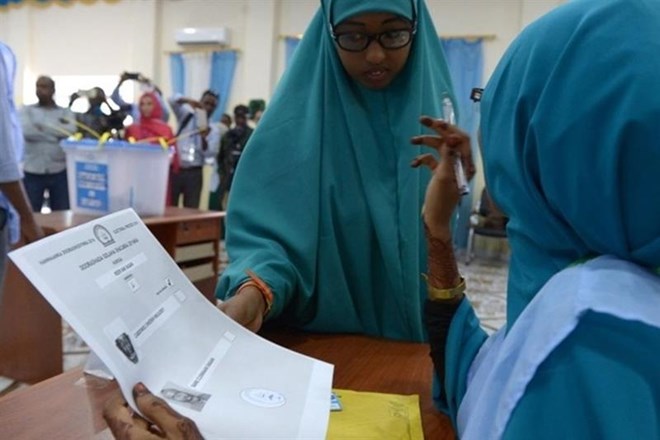
Friday August 9, 2024
Somalia has not had one-person, one-vote elections nationwide since 1969, when the dictator Siad Barre seized power. AFP
Somalia's cabinet on Thursday endorsed legislation to allow a one-person-one-vote election system that was hailed as a "historic" step for the troubled Horn of Africa nation.
advertisements
The law aims to replace a complex clan-based indirect voting system that has been in place since 1969, when the dictator Siad Barre seized power."The national elections law will direct the country to (hold) one-person-one vote elections," Somali government spokesman Farhan Jimale told a media briefing.
Somalia is struggling to emerge from decades of conflict and chaos, battling a bloody Islamist insurgency and frequent natural disasters as well as internal political feuds.
The election plans were first unveiled in 2023 following a National Consultative Forum set up to discuss political reforms, with the system to be introduced with nationwide local ballots initially due to take place in June this year.
But the reforms ran into headwinds with leading Somali politicians saying they lacked the full support of all federal states, particularly the semi-autonomous state of Puntland which has long been at odds with the central government in Mogadishu.
Jimale said the cabinet of Prime Minister Hamza Abdi Barre had unanimously approved the legislation, and another law governing which parties can take part in elections, describing it as "historic".
"(It) will give every Somali citizen the constitutional right to vote for a leader of their choice," he added.
However, the laws will have to go to parliament for approval before they can be officially signed into law by President Hassan Sheikh Mohamud.
Clan affiliations have been the organising principle of Somalia's politics, with influential roles such as speaker, prime minister and president divided among the main groups.
State legislatures and clan delegates have also picked lawmakers for the national parliament, who in turn choose the president.
But clan rivalries have resulted in decades of strife and political wrangling, which in recent years have been exploited by the Al-Shabaab jihadists linked to Al-Qaeda.
Universal suffrage is already in place in the breakaway region of Somaliland, which declared independence in 1991 but has never been recognised internationally.
In May 2023, the semi-autonomous state of Puntland held local polls by direct ballot, but rolled back on plans to use the system again for local and regional elections in January this year.
And in March, it announced it would no longer recognise federal institutions after parliament backed the one-person, one-vote plan.
There has yet to be any reaction from the Puntland authorities to Thursday's announcement.
Al-Shabaab, which has been fighting an insurgency against the fragile government, has sought to disrupt past elections with attacks.
The federal government in 2022 joined forces with local clan militias to fight the Islamists in an offensive supported by an African Union peacekeeping force and US air strikes.
The force is due to hand over security to the Somali army and police at the end of this year, and has been slowly drawing down its troops.
But the AU said this week said it had endorsed a new mission to be known as the African Union Support and Stabilisation Mission in Somalia (AUSSOM) with troop contributions from Egypt and Djibouti.